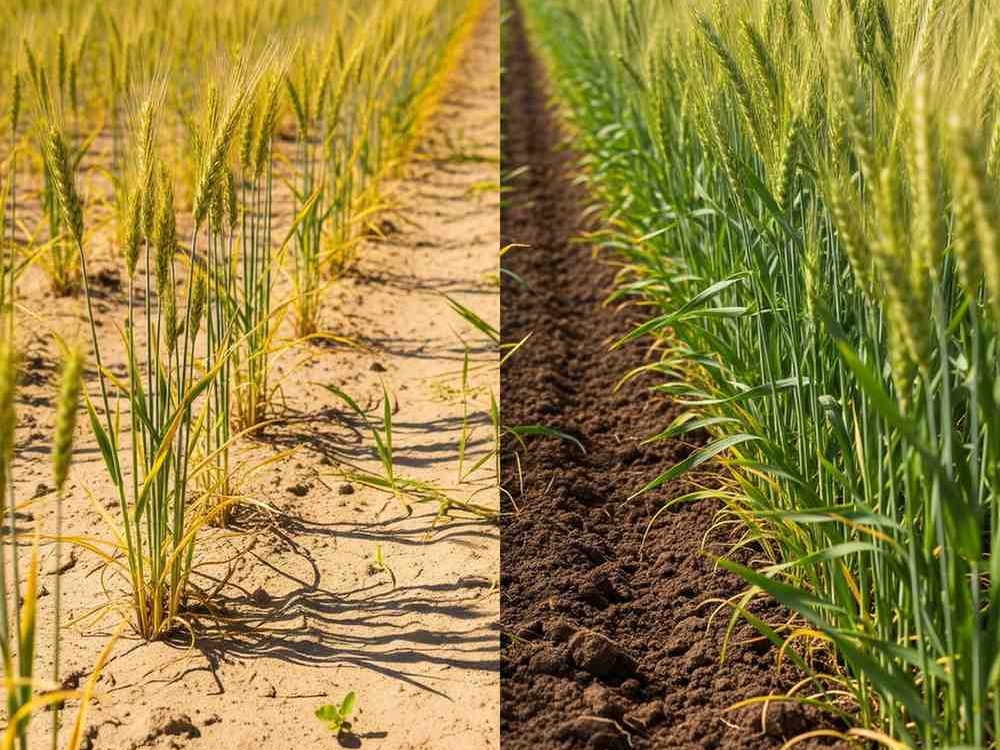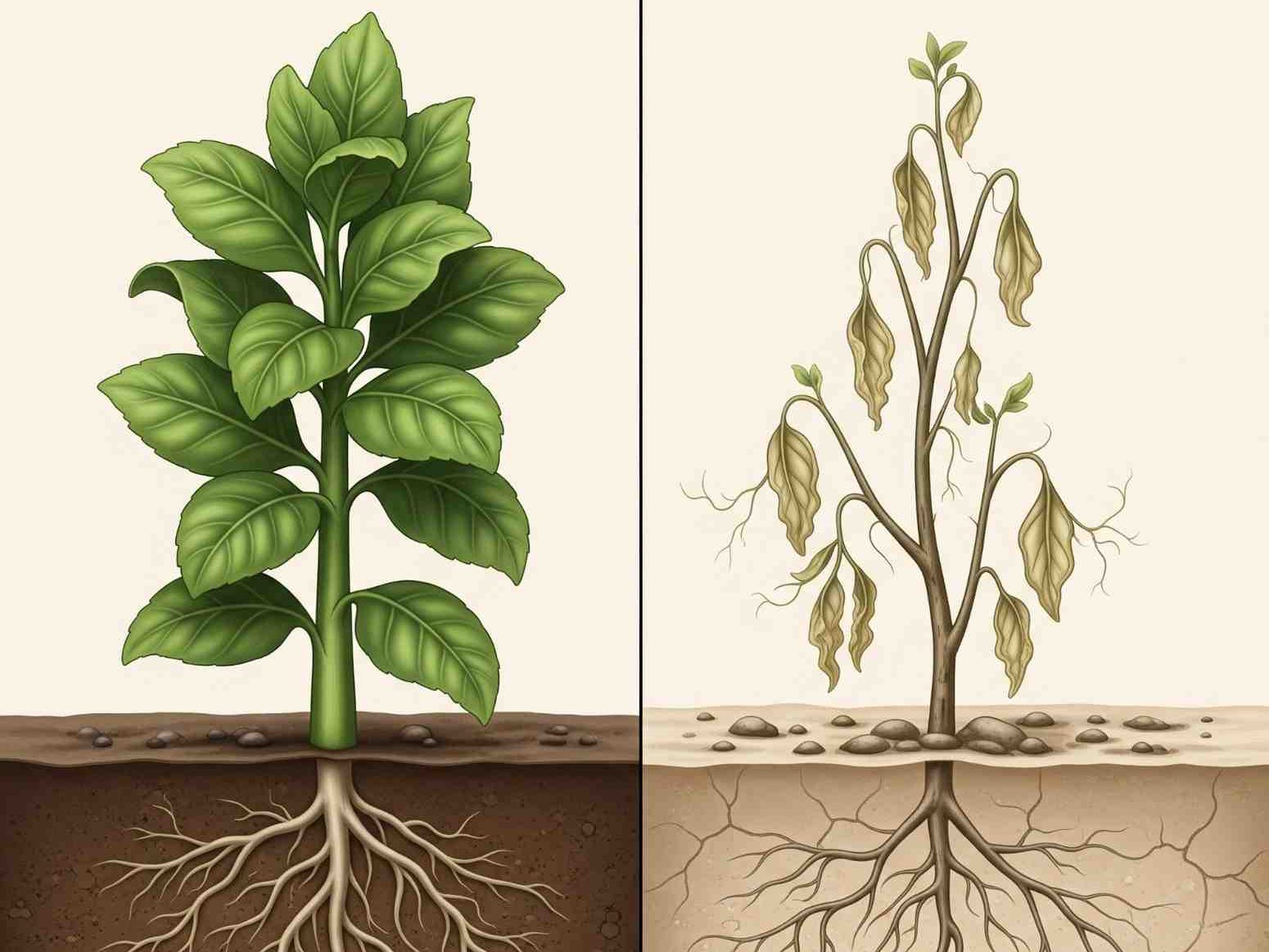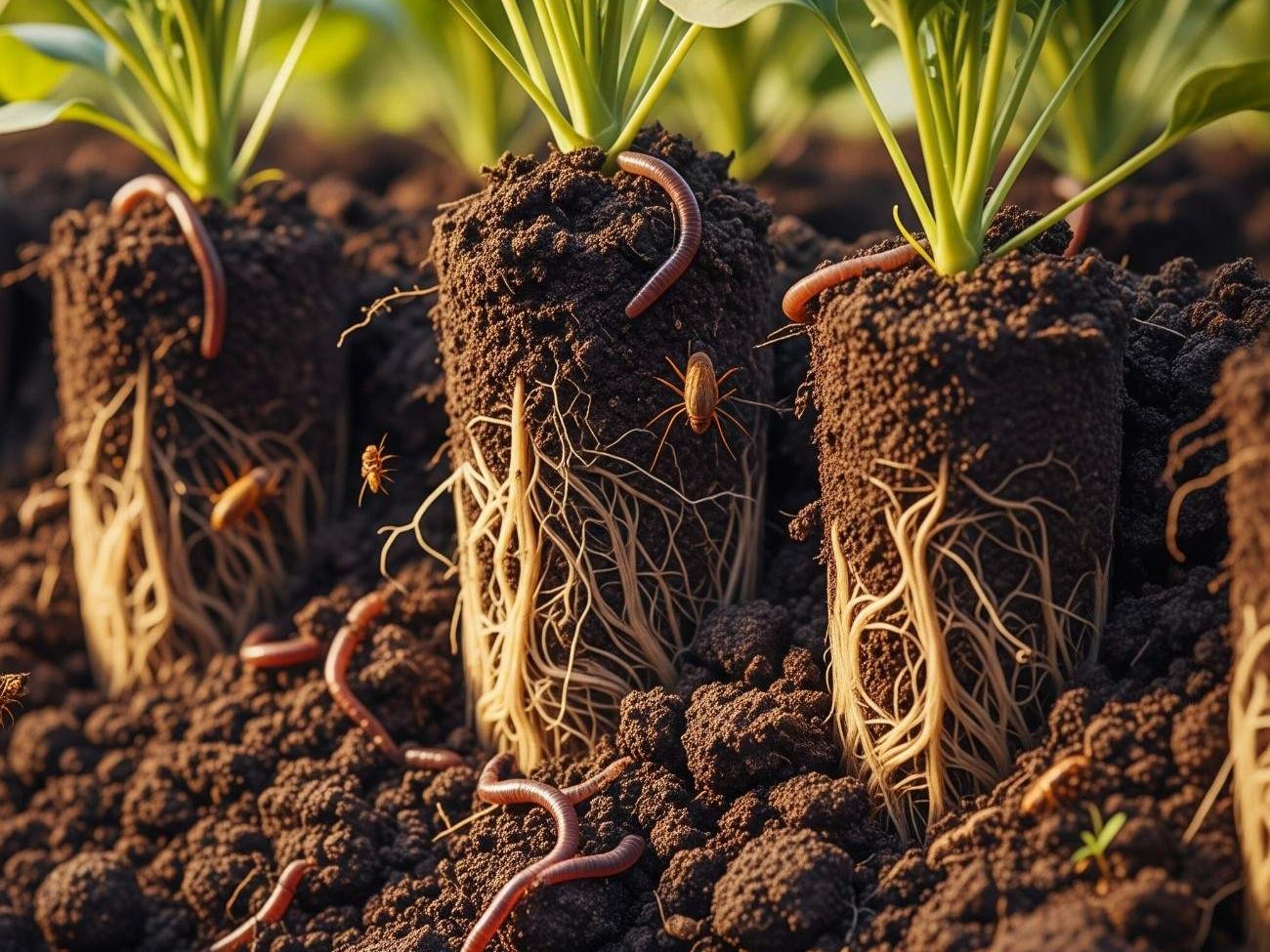Soil Health & Plant Immunity: The Root of Resilient Farming
In the world of agriculture, every farmer dreams of crops that thrive—lush, healthy, and resistant to diseases. But what if we told you that the secret to healthier plants lies beneath your feet? Yes, we’re referring to soil health.
A living, breathing, nutrient-rich soil is not only the foundation for robust plants, but it also plays a crucial role in enhancing their immunity. Let’s explore how the condition of your soil directly influences your plants’ ability to combat diseases and stress.

What is Soil Health?
Soil health is more than just dirt; it is a dynamic ecosystem. Healthy soil possesses.
- A Balanced Structure
- The ability to retain moisture.
- There is an abundance of organic matter.
- Life in the form of microbes, fungi, and earthworms.
These components aid in the breakdown of nutrients for plant absorption, foster a supportive root environment, and suppress harmful pests and pathogens.
In summary, healthy soil creates a stable environment that allows plants to grow strong and resilient.
What is Plant Immunity?
Just like humans, plants possess their own immune systems. Plant immunity refers to a plant’s ability to resist pests, diseases, and environmental stressors. Plants develop this immunity through:
- Strong Cell Walls
- Symbiotic Relationships with Microbes in the Root Zone
- Hormonal Responses to Combat Infection and Stress
When plants are cultivated in nutrient-deficient or barren soils, their immune systems become compromised, rendering them more susceptible to pests and diseases.

The Soil–Immunity Connection
The relationship between soil health and plant immunity is significant and frequently underestimated.
When soil is rich in life, it enables plants to activate their natural defenses. Here’s how:
- Beneficial microbes: such as mycorrhizae and rhizobacteria, form a protective shield around plant roots.
- Organic matter enhances soil structure and improves the retention of water and nutrients.
- Microbial activity in the soil activates a plant’s immune system, enhancing its natural resistance to diseases such as blight, wilt, and root rot.
Soils enriched with vermicompost exhibit increased microbial populations, resulting in healthier root development and enhanced disease resistance in crops such as tomatoes, chilies, and leafy greens.
Signs of Healthy, Immune-Supportive Soil
You can determine that your soil is fostering robust plant immunity if you observe:
- Presence of Earthworms and Insect Activity
- A pleasant, earthy aroma.
- Dark, crumbly texture.
- Deep, wide-spreading roots.
- Crops that are robust and free from disease.

Simple Tips for Enhancing Soil Health
- You don’t need to make significant changes to see results. Begin with small practices like these:
- Regularly apply vermicompost to enhance organic content.
- Practice crop rotation to maintain soil fertility.
- Use cover crops, such as legumes, to fix nitrogen and protect the soil.
- Use mulch to retain moisture and suppress weed growth.
- Avoid Excessive Tillage to Preserve Beneficial Microbes.
- Use organic fertilizers to enhance long-term soil fertility and plant resilience.
Conclusion
Healthy soil is nature’s method of safeguarding your crops. It fosters stronger root systems, supports microbial life, and naturally enhances plant immunity. With improved soil quality, you will encounter fewer pests, achieve higher yields, and create a more sustainable farming environment.
Remember : When you nourish the soil, the soil nourishes your plants.